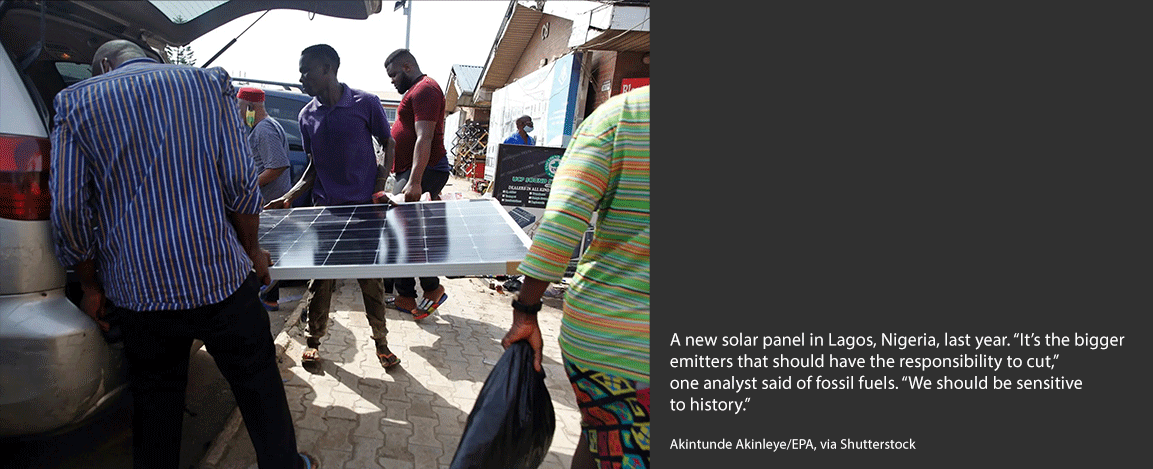As negotiators at the Glasgow climate talks try to agree on greenhouse gas cuts, African leaders say poorer countries can’t be expected to remake their systems as quickly as wealthy ones, writes Shola Lawal for the New York Times. Read the full text here.
Shola Lawal is based in Lagos, Nigeria. She was a research associate at CIS during her tenure as the 2019 International Women's Media Fellowship's Elizabeth Neuffer Fellow.
A swift transition is crucial in the global fight against climate change. But not only would that be particularly costly in poorer nations, many African countries have an abundance of fossil fuels, including natural gas, and they argue forcefully that the rest of the world doesn’t have a right to tell Africa not to use those resources.
Proven crude oil reserves on the African continent total more than one hundred billion barrels spanning eleven countries, with Libya and Nigeria among the 10 biggest producers globally. The region is rich in gas, too: Combined, Nigeria, Algeria and Mozambique hold about 6 percent of the world’s natural gas reserves.
As world leaders meet at COP26 in Glasgow, some African leaders and activists are, for the first time, vocally opposing a speedier pivot to renewables for their countries. Instead, they are pressing for a slower transition, one that would embrace a continued reliance on fossil fuels—particularly natural gas, which burns more cleanly than coal or oil, but which still pumps planet-warming carbon dioxide into the atmosphere.
Their calls come at an awkward time. Read the full text here.




